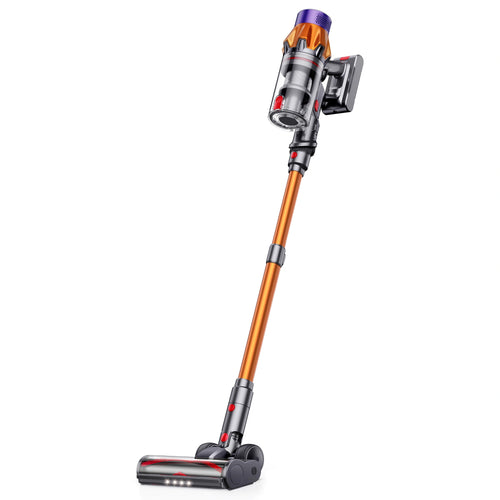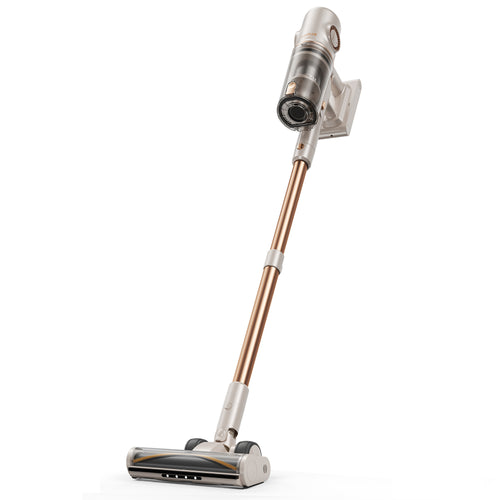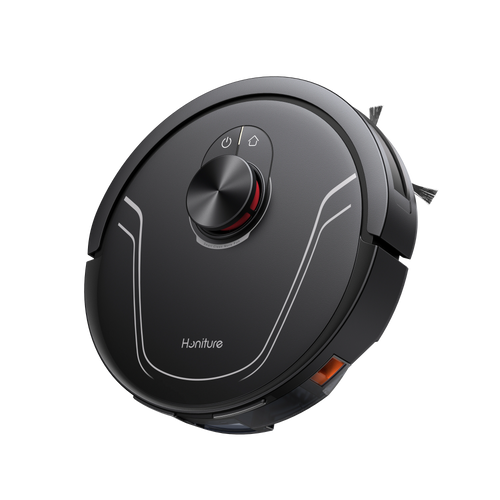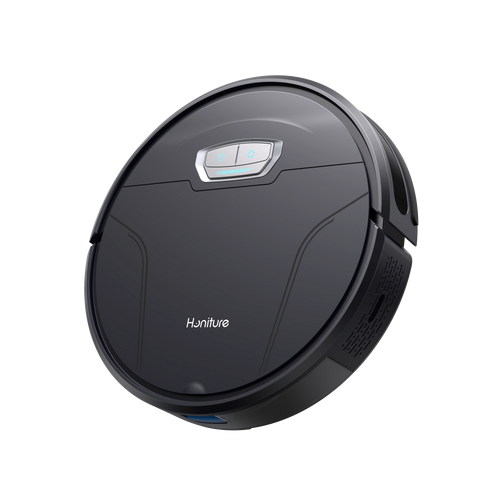In the field of modern home cleaning, vacuum cleaners have become an indispensable household "must have". However, faced with a wide range of cordless and corded vacuum cleaners on the market, many consumers are often confused: which one is the best cleaning partner for them? This key choice will significantly affect your cleaning habits. This guide aims to explore the technical status, advantages and disadvantages, and purchase considerations of these two vacuum cleaners in depth, and compare their cleaning capabilities and usage time in detail. It aims to provide you with all the necessary information to help homeowners, tenants, cleaning professionals, and technology enthusiasts make scientific and wise decisions that best suit their needs.
Market status of cordless and corded vacuum cleaners
In recent years, cordless vacuum cleaners have become one of the fastest growing cleaning appliances. According to market research, more than 70% of households tend to choose convenient and good-looking cordless models when buying vacuum cleaners, which are particularly popular in urban apartments and young families.
At the same time, corded vacuum cleaners still have a stable market among some users who have a high demand for deep cleaning of large areas, because their stable suction output and long-lasting battery life are still irreplaceable.
So, let's take a deep look at the showdown between wired and cordless vacuum cleaners. It's time to see which type of vacuum cleaner is better.

Understanding Vacuum Cleaners: Wired and Wireless
Vacuum cleaners have long been a household staple. Corded vacuum cleaners have long dominated the market with their powerful suction and consistent performance. These vacuum cleaners connect directly to a power source, providing an uninterrupted cleaning experience. Meanwhile, cordless models are becoming a popular alternative and their market growth rate continues to rise. Their appeal lies in their flexibility and ease of use, especially when it comes to maneuvering around obstacles.
Cordless vacuum cleaners free users from the constraints of wires. However, they rely on battery life, which can limit their operating time. Understanding these differences is essential to making an informed decision. Consider your living space, cleaning habits, and specific needs when considering your options.
By taking a closer look at corded and cordless vacuum cleaners, you'll discover the unique features of each. This understanding will help you choose the right vacuum cleaner for a cleaner, more comfortable home.
Suction: Wired vs Wireless
The core of a vacuum cleaner's cleaning ability lies in its suction power, that is, how strongly it sucks in dust, dirt and debris. Corded vacuum cleaners are traditionally known for their strong suction power. Direct power supply allows it to maintain stable performance throughout the cleaning process.
Cordless vacuums, while continually improving, still face challenges matching this power level. Batteries can limit the motor's potential, leading to erratic performance. However, advances in battery technology are steadily closing this gap.To effectively compare these vacuum types, consider:
- Suction power remains consistent over time.
- Ability to handle debris of various sizes.
- Performance on different floor types.

Comparison of the pros and cons of cordless and corded vacuum cleaners
Choosing a vacuum cleaner is often a trade-off between "power" and "convenience".
Pros of cordless vacuum cleaners:
- Extreme portability and flexibility: No need for sockets, free movement, easy cleaning of any corner of the home, including stairs, car interiors and high places.
- Lightweight and easy to use: Usually designed to be lighter, easy to operate and store, especially suitable for small households or users with limited mobility
- Quick cleaning: Suitable for daily small-scale quick cleaning, such as spilled snacks or local dust
- Versatility: Many models can be converted to handheld, with a variety of accessories, it is more convenient to clean furniture, gaps and high places.
- Advanced technology: Generally integrated with intelligent functions, such as real-time power display, automatic suction adjustment, application control, etc.
Cons:
- Battery life limitations: Relying on batteries for power, the battery life is limited, especially when in high power mode, and you may not be able to clean large areas in one go.
- Suction power may not be as good as corded ones: Traditionally, cordless vacuum cleaners have not been able to sustain as much suction power as corded models, especially when the battery is low. However, modern technology has greatly improved their suction power, and high-end models can even rival corded vacuum cleaners.
- Smaller dust collection capacity: Due to size limitations, the dust cup capacity is usually smaller and needs to be emptied more frequently.

Pros of corded vacuum cleaners:
- Strong and continuous suction: Directly connected to the power supply, the motor can run at full power, providing stable and strong suction, which is very suitable for deep cleaning carpets and stubborn dirt.
- Unlimited running time: As long as it is plugged in, it can continue to work without worrying about running out of power, suitable for cleaning large areas.
- Large dust collection capacity: Usually equipped with a larger dust bag or dust cup to reduce the frequency of emptying.
- High cost performance: Usually more economical than cordless vacuum cleaners.
The pros and cons of cordless and corded vacuum cleaners
Choosing a cordless or corded vacuum cleaner ultimately depends on your specific cleaning needs and home environment. Here are a few key considerations:
Home size and cleaning frequency:
- Small apartment or condo: Cordless vacuum cleaners are ideal because they are lightweight, portable and easy to store.
- Large apartment or multi-storey residence: Corded vacuum cleaners offer unlimited battery life and strong suction, making them more suitable for deep cleaning of large areas at one time. Now there are cordless vacuum cleaners that can provide long-term stable suction, and the gap between them and corded vacuum cleaners has narrowed.
Floor Type:
- Hard Floors Predominantly: Modern cordless vacuums (especially models with soft-pile roller brushes) excel on hard floors and are effective at picking up fine dust.
- Carpet Predominantly (especially thick carpets): Corded vacuums typically have more suction and brush agitation, which makes them more effective at cleaning deep-set dirt and pet hair. Cordless vacuums now have multiple accessories to choose from and can still clean deep-set dirt and hair.

Do you have pets or children:
- You have pets: Pet hair is a huge challenge for vacuum cleaners. Corded vacuum cleaners are generally better at handling large amounts of pet hair because of their strong suction power. However, many cordless vacuum cleaners also have special designs for pet hair, such as anti-tangle brush heads and stronger suction modes, which is almost the same.
- You have children: Cordless vacuum cleaners are convenient for quickly cleaning small local messes made by children
Special functional requirements:
- Allergy sufferers: Corded vacuum cleaners usually have larger dust collection capacity and more complete filtration systems (such as HEPA+ sealing systems), which can better lock dust and allergens. Cordless vacuum cleaners are also beginning to popularize HEPA filtration systems, and they can be replaced regularly to reduce allergens.
- Smart home integration: Cordless vacuum cleaners are more often equipped with smart features such as Wi-Fi connectivity, app control, and voice assistant compatibility
Suction power: corded vs. cordless vacuums
The core of a vacuum's cleaning ability lies in its suction power, or how hard it sucks up dust, dirt, and debris. Suction power is usually measured in "airflow watts (AW)" or "pascals (Pa)." Airflow watts measures the overall cleaning ability of a vacuum, combining suction power and airflow, while pascals focus on suction power itself, or how hard it sucks up heavy objects like pet hair.
Corded vacuum cleaners: Traditionally have the upper hand in terms of suction power . Since they are directly connected to the power source, they can have more powerful motors, providing stable and strong suction power that will not decrease due to battery depletion.
Cordless vacuum cleaners: Battery power limits their maximum instantaneous suction power, but technology has improved significantly in recent years. Many modern cordless vacuum cleaners have suction power comparable to corded vacuum cleaners.

In Conclusion
Cordless vacuum cleaners have become the darling of modern families with their unparalleled convenience and increasingly improved performance, especially suitable for daily quick cleaning and small spaces. Corded vacuum cleaners, with their stable and powerful suction and unlimited battery life, are still a reliable choice for deep cleaning, large area cleaning and carpet cleaning.
In the final choice, there is no absolute "best", only "the most suitable". I hope this article can provide you with comprehensive information to help you make the most suitable choice based on your lifestyle, home environment and cleaning needs.
Frequently Asked Questions(FAQ)
Q1: Is it true that the suction power of a cordless vacuum cleaner is not as good as that of a corded vacuum cleaner?
Traditionally, corded vacuum cleaners have a more stable and powerful suction due to continuous power supply, which is suitable for deep cleaning. However, the technology of modern cordless vacuum cleaners has been greatly improved. In MAX mode, it can provide instantaneous strong suction comparable to corded ones, which is enough for daily cleaning. The difference is that the battery life in the strong mode is limited.
Q2: Which vacuum cleaner has a longer battery life?
Corded vacuums provide unlimited cleaning time as long as they are plugged in. Cordless vacuums, on the other hand, are limited by their batteries, and can generally run for 60 minutes
Q3: Which vacuum cleaner is more convenient and lighter to use?
Cordless vacuum cleaners have obvious advantages in portability and flexibility. They do not require a socket and can be used at any time. They are more suitable for quick cleaning and cleaning of corners such as stairs and cars, and are usually designed to be lighter (2-4 kg). Corded vacuum cleaners are restricted by wires, are inconvenient to move, and are usually heavier (5-10 kg).
Q4:Which vacuum cleaner is better for larger homes or homes with lots of carpet?
For large households, households with many carpets or households that need deep cleaning, corded vacuum cleaners will perform better due to their continuous strong suction power and generally larger dust cup capacity. Cordless vacuum cleaners are more suitable for small households, households that need frequent and quick cleaning or households with cars.
Q5:Which is more expensive, a cordless vacuum cleaner or a corded vacuum cleaner?
Overall, cordless vacuums generally have a higher cost of entry, especially for more powerful models. Corded vacuums have more affordable options. Of course, high-end corded and cordless vacuums can be expensive.
































